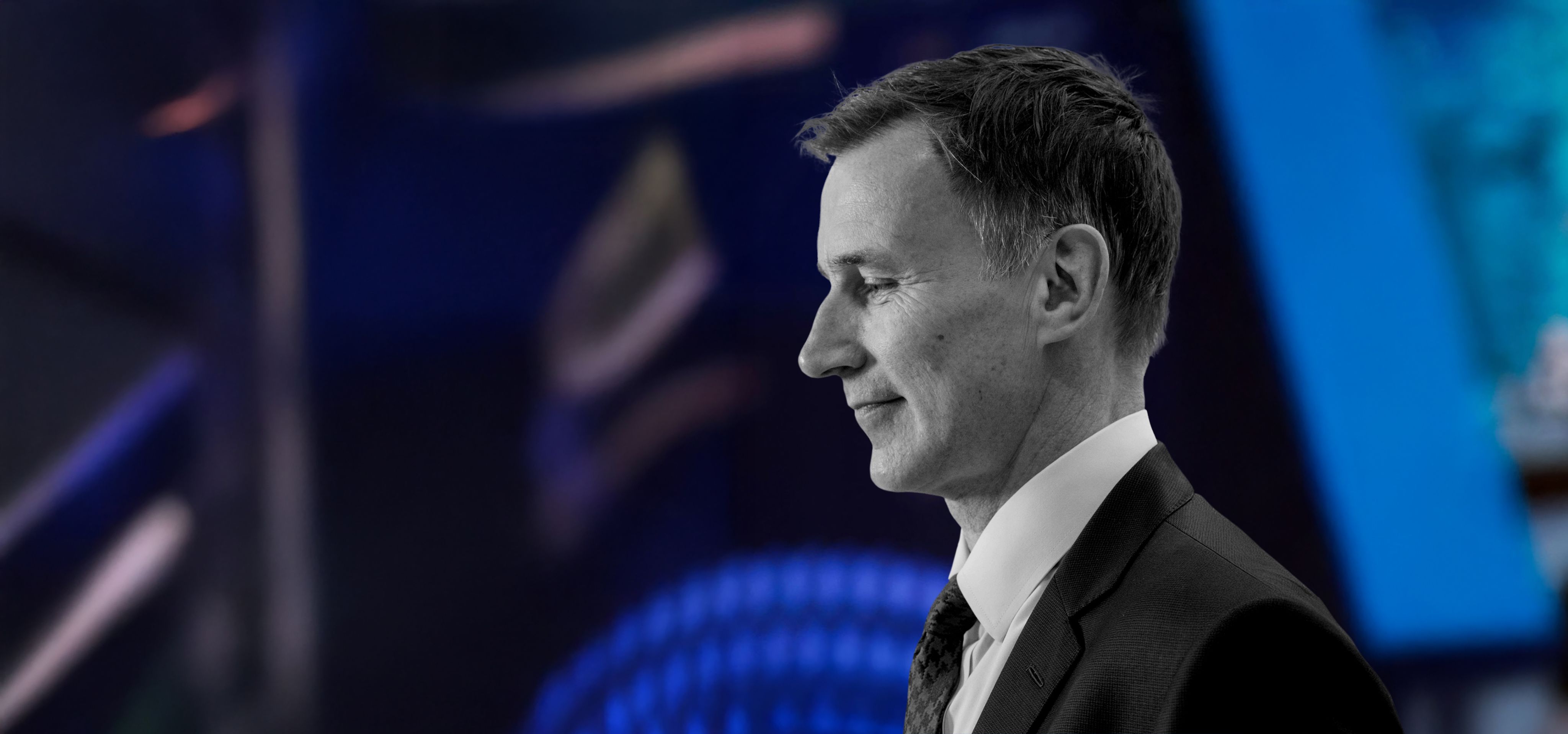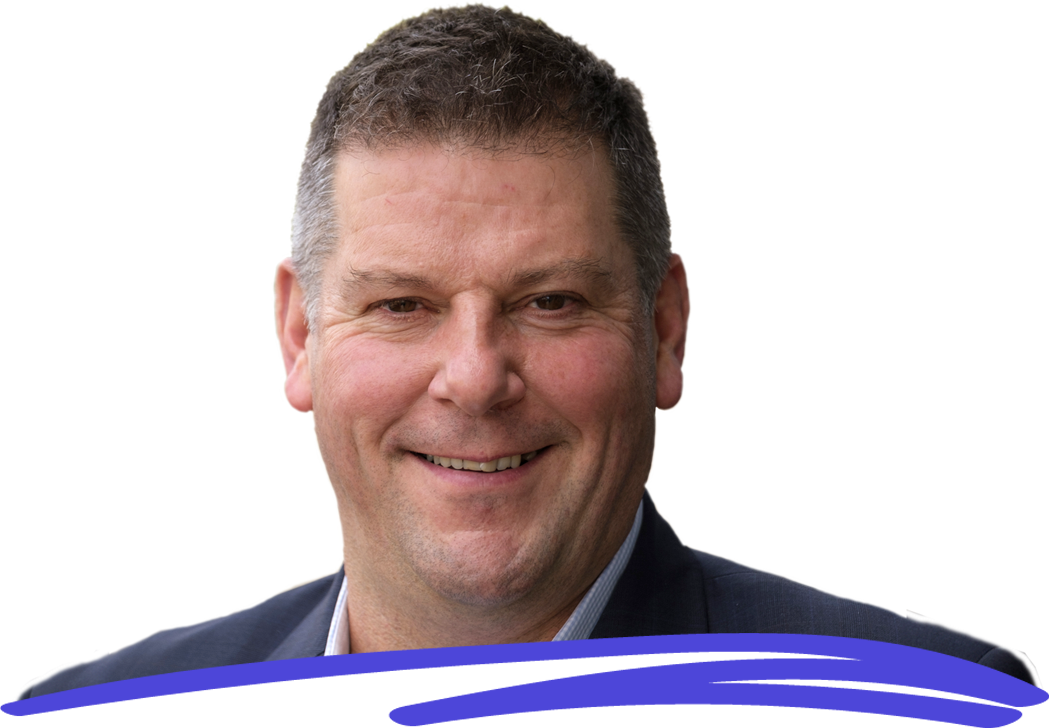Dear Jeremy,
This is what accountants do…

Dear Jeremy,
This is what accountants do…

The former Chancellor’s comments about the future of accountancy in the age of AI suggest a man on a wild goose chase, says CEO Bruce Cartwright CA
Iam acutely conscious that with the rapid change in technology there are career paths opening up that simply did not exist even a few years ago. This creates opportunity but also challenge for existing professions in the ongoing war for talent. So the onus is on us to show that a career in the accountancy profession remains an attractive prospect and a passport to a successful life in business.
So when I read misinformed comments, such as those in the recent Times piece headlined “AI is coming for accountants’ jobs, says Jeremy Hunt”, it is more than disappointing. Particularly when the quote comes from someone who was central to the country’s finances and who should have a clear understanding of the role the profession plays across business. Yes, the job is changing; no, the future is not bleak – rather, it’s full of opportunity.
Given who was making the statement we needed to set the narrative right – and you can read our response here. We have watched the reaction to our letter with interest. Nobody has said we are wrong, that we are Luddites, in denial of the inevitable or glossing over the truth because we cannot accept that ours is a dying profession. Quite the contrary.
Hunt speaks with the authority of his former position as Chancellor of the Exchequer. I find it surprising he appears to have such a poor understanding of the true value of what accountants do, the major contribution we make to the national economy and the talent that we export across the world.
If all we did was sit at our machines, pressing buttons and adding up columns of numbers, we probably would be in trouble, and the threat posed by AI would be an existential one. Yes, the veracity of the numbers is important, but it’s what you do with them that really matters. “Seek the truth”, our motto since 1854, leads to “follow the truth”.
The accountancy professional works across all tiers of our business community. They are sounding boards sitting at the heart of the economy in many small towns. They are respected as trusted advisers, ensuring an accurate record, but also providing advice on tax and offering strategic insight to help grow their clients’ enterprise.
“We see the potential of the new technology, but an accountant must still understand where the numbers were generated and how”
If you’re an accountant in a rural community you probably count among your clients many farmers, who have a tax position that is particular to their industry and complex risks to consider. They will often do that in consultation with their accountant.
At the other end of the business spectrum (and there are many stops in between, such as sole traders, entrepreneurs, business owners and people who are running anything from hotel chains to hospitals) there are CAs who are captains of industry. Our members include CFOs at some of the UK’s biggest companies – and if you’re in any doubt about the significance of that role, just consider that around a third of the CEOs of FTSE 100 companies were previously CFOs (a proportion that has grown rapidly over recent years).
Reading the numbers
The chartered accountant is trained to be able to digest and interpret the numbers. To be able to point out the weaknesses and strengths of a business to their client. To be able to say, for example: “These figures suggest that if you focus your marketing in this area, you’re going to get the best value for your spend.” Or: “By continuing to produce these particular products, you will lose money.”
Having the CA qualification gives you an understanding of which levers a business can pull and what happens when you do. This is the fundamental truth at the heart of what we contribute.
And let’s be clear, good accountants are delighted that AI can help them produce the numbers quicker. We see the potential of the new technology. Just look at the results from the CA Careers Survey in this issue, along with the AI report recently published by Chartered Accountants Worldwide. But an accountant must still understand where the numbers were generated and how.
In the same interview, Hunt said he is writing a book about “Britain’s role in the world”. “And when you’re doing research,” he said, “ChatGPT is just so fantastic at telling you things instantly.” For his sake, and that of his publisher, I hope he applies the sort of professional rigour that we expect of our members – ChatGPT is not an infallible fact machine, but a tool that aggregates often unverified information, and can produce (or “hallucinate”, to use the terminology) the wrong answer.
Indeed, one of the growing dangers is that people simply assume that whatever AI produces must be correct. Elsewhere in this issue, we hear from Claire Glover, one of our ICAS course leaders, who cautions: “There’s a lot of hype around AI. But I’ve tested tax-related AI tools that produced horrendous answers… And, of course, AI can only be as good as the data you put into it.”
On this occasion, I’d suggest, the former Chancellor’s assumptions are in need of better data.
For more resources, visit our AI and technology hub
The former Chancellor’s comments about the future of accountancy in the age of AI suggest a man on a wild goose chase, says CEO Bruce Cartwright CA
Iam acutely conscious that with the rapid change in technology there are career paths opening up that simply did not exist even a few years ago. This creates opportunity but also challenge for existing professions in the ongoing war for talent. So the onus is on us to show that a career in the accountancy profession remains an attractive prospect and a passport to a successful life in business.
So when I read misinformed comments, such as those in the recent Times piece headlined “AI is coming for accountants’ jobs, says Jeremy Hunt”, it is more than disappointing. Particularly when the quote comes from someone who was central to the country’s finances and who should have a clear understanding of the role the profession plays across business. Yes, the job is changing; no, the future is not bleak – rather, it’s full of opportunity.
Given who was making the statement we needed to set the narrative right – and you can read our response here. We have watched the reaction to our letter with interest. Nobody has said we are wrong, that we are Luddites, in denial of the inevitable or glossing over the truth because we cannot accept that ours is a dying profession. Quite the contrary.
Hunt speaks with the authority of his former position as Chancellor of the Exchequer. I find it surprising he appears to have such a poor understanding of the true value of what accountants do, the major contribution we make to the national economy and the talent that we export across the world.
If all we did was sit at our machines, pressing buttons and adding up columns of numbers, we probably would be in trouble, and the threat posed by AI would be an existential one. Yes, the veracity of the numbers is important, but it’s what you do with them that really matters. “Seek the truth”, our motto since 1854, leads to “follow the truth”.
The accountancy professional works across all tiers of our business community. They are sounding boards sitting at the heart of the economy in many small towns. They are respected as trusted advisers, ensuring an accurate record, but also providing advice on tax and offering strategic insight to help grow their clients’ enterprise.
“We see the potential of the new technology, but an accountant must still understand where the numbers were generated and how”
If you’re an accountant in a rural community you probably count among your clients many farmers, who have a tax position that is particular to their industry and complex risks to consider. They will often do that in consultation with their accountant.
At the other end of the business spectrum (and there are many stops in between, such as sole traders, entrepreneurs, business owners and people who are running anything from hotel chains to hospitals) there are CAs who are captains of industry. Our members include CFOs at some of the UK’s biggest companies – and if you’re in any doubt about the significance of that role, just consider that around a third of the CEOs of FTSE 100 companies were previously CFOs (a proportion that has grown rapidly over recent years).
Reading the numbers
The chartered accountant is trained to be able to digest and interpret the numbers. To be able to point out the weaknesses and strengths of a business to their client. To be able to say, for example: “These figures suggest that if you focus your marketing in this area, you’re going to get the best value for your spend.” Or: “By continuing to produce these particular products, you will lose money.”
Having the CA qualification gives you an understanding of which levers a business can pull and what happens when you do. This is the fundamental truth at the heart of what we contribute.
And let’s be clear, good accountants are delighted that AI can help them produce the numbers quicker. We see the potential of the new technology. Just look at the results from the CA Careers Survey in this issue, along with the AI report recently published by Chartered Accountants Worldwide. But an accountant must still understand where the numbers were generated and how.
In the same interview, Hunt said he is writing a book about “Britain’s role in the world”. “And when you’re doing research,” he said, “ChatGPT is just so fantastic at telling you things instantly.” For his sake, and that of his publisher, I hope he applies the sort of professional rigour that we expect of our members – ChatGPT is not an infallible fact machine, but a tool that aggregates often unverified information, and can produce (or “hallucinate”, to use the terminology) the wrong answer.
Indeed, one of the growing dangers is that people simply assume that whatever AI produces must be correct. Elsewhere in this issue, we hear from Claire Glover, one of our ICAS course leaders, who cautions: “There’s a lot of hype around AI. But I’ve tested tax-related AI tools that produced horrendous answers… And, of course, AI can only be as good as the data you put into it.”
On this occasion, I’d suggest, the former Chancellor’s assumptions are in need of better data.
For more resources, visit our AI and technology hub





